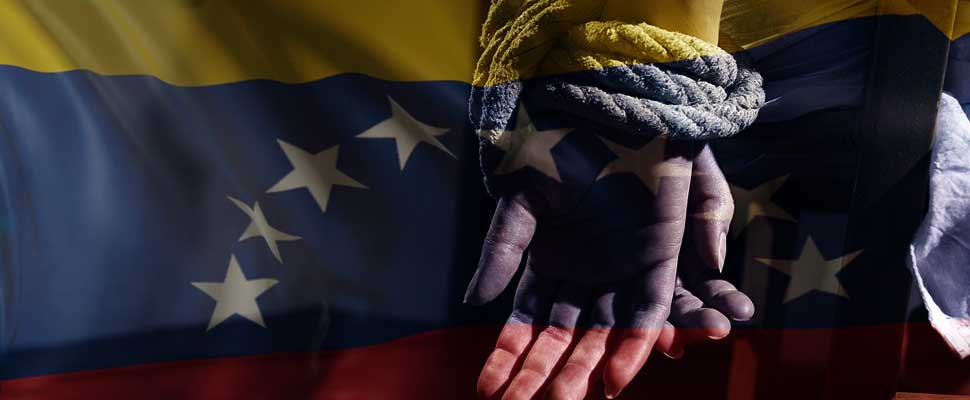Is the Venezuelan government ‘kidnapping’ minors?
Several teenagers have been detained for more than four months for fomenting demonstrations against Nicolás Maduro and their fundamental rights have not been guaranteed

In Venezuela, thinking differently is a reason for imprisonment. The latest report issued by the NGO Penal Forum, indicates that at least 233 people are under the condition of political prisoners in that country. This number begins to add minors who are detained for encouraging alleged "acts of hate".
Leer en español: ¿Está el gobierno de Venezuela ‘secuestrando’ menores de edad?
Since the anti-government protests registered in 2017, the Nicolás Maduro regime demonstrated that it would impart force regardless of gender or age. To argue such actions, the National Constituent Assembly (ANC) – an organ created by Maduro to usurp the powers of the elected legislature – established the Law against Hate, a regulation that since November of the same year allows punishing actions that are defined in a short as "acts of hate".
Under this banner, seven minors are being held at the headquarters of the Bolivarian Intelligence Service of Venezuela (Sebin) since last January. Children under 16 and 17 are behind bars for inviting their friends through social networks to participate in protests and demonstrations against the Nicolás Maduro regime.
Kidnapping or teaching a lesson?
The adolescents, who could face up to 20 years in prison according to the norms established by the government, are being held in inhuman conditions living in cells with adults and without drinking water. According to a report presented last month by the NGO Operation Libertad, the minors would be in a dungeon "called 'Preventiva 1', which measures approximately 10 square meters. The cell has terrible hygienic and sanitary conditions: greasy walls, humidity and mold; poor lighting and ventilation; presence of rats and cockroaches".
These adolescents who have been in prison for more than four months have had their rights violated and contact with their parents or lawyers from the date of their detention has been denied. According to one of the affected mothers, as she stated for NTN24, Sebin agents indicate that the names of the adolescents are not registered in the list of visits due to their status as political prisoners.
Different humanitarian organizations have described the event as a "kidnapping" of the Venezuelan regime, since although the justice system approved bail for minors, the Sebin officials did not want to release them.
Overcrowding, violence, and malnutrition
As indicated by Operation Libertad, the young people incarcerated for promoting the demonstrations against Nicolás Maduro have been victims of physical and psychological aggressions. This is not unusual in Venezuela since overcrowding in the nation's prisons is one of the many scourges that the government has not been able to combat. The NGO Observatorio Venezolano de Prisiones (OVP, or Venezuelan Prisons Observatory) denounced in March 2017 the critical conditions of overpopulation that inmates live both in prisons and state and municipal gourds.
As stated by Humberto Prado, general coordinator of OVP, 95% of the prisons in the Bolivarian country are at critical risk and overcrowding is one of the main causes of violence and malnutrition that occur in prisons.
Other data from the OVP shows an increase in the prison death rate since 1999. According to the NGO, at least 6,745 inmates have died in prisons since the aforementioned year. 173 of these died only in 2016. In addition, another 16,575 individuals were injured during clashes between prisoners in the correctional facilities.
Latin American Post | Krishna Jaramillo
Copy edited by Laura Rocha Rueda





